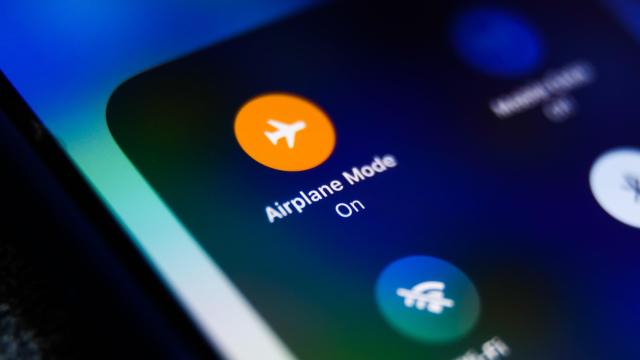Putting your phone in airplane mode when boarding a flight feels like common sense. You wouldn’t be crazy for thinking your phone signal could interfere with an airplane’s navigation systems, potentially causing a disaster. However, the necessity of airplane mode is largely a myth, and there’s another reason airlines are asking you to turn your phone off.
Europe decided to allow phone calls and data usage on flights in 2022. They’re requiring all planes to install “pico-cells,” which is essentially a traffic controller that ensures phone signals don’t cross with a plane’s communication systems. Pico-cells are not new, however, they’ve been around for over two decades.
Even without a pico-cell, there’s limited evidence that your phone has ever interfered with a plane’s electrical systems. The Federal Aviation Administration (FAA) conducted a study in 2012 that found nearly zero conclusive instances of aircraft disturbances from cell phone usage. Most of the evidence on this seems to be anecdotal or severely outdated.
The real reason is this: airlines think people won’t stop yapping on their cell phones during flights, leading to more instances of “air rage.” That’s why regulators continue to ban phone calls and data usage on planes; it’s just plain annoying.
Air rage—the violent anger directed at flight attendants and passengers caused by the stressors of air travel—is a huge problem in the United States, and it’s getting worse. The FAA reported more than 10,000 unruly passengers between 2021 and 2023, a roughly 300% increase from 2018-2020. However, it’s also the reason myths about airplane mode have persisted.
Origins of the Myth
In 1991, the Federal Communications Commission (FCC) banned the use of cell phones on planes, citing the reason of “ground network interference.” At one point, this may have been true, but in 2005, an FCC member testified before Congress that it was no longer an issue because of pico-cells.
“With advances in cell phone technology since 1991, [the FCC’s] rule banning 800 MHz cell phone use in flight, may not be needed in order to protect the terrestrial or ground-based cellular networks,” said FAA administrator Nicholas Sabatini in his testimony.
But the rule banning cell use on planes persisted. In 2013, the FCC got a new chairman, Tom Wheeler, who wanted to shake things up by enabling phone calls and data usage on flights. It started a huge controversy, but not for technological concerns.
“Allowing cellphones on planes sounds like the premise of a new reality show: ‘Cage Fighting at 30,000 Feet,’ ” said Oregon Rep. Greg Walden to the Washington Post at the time.
“Let me say up front that, I get it. I don’t want the person in the seat next to me yapping at 35,000 feet any more than anyone else,” said Wheeler in 2013. “Because new technology makes the old rule obsolete, the FCC should get the government out from between airlines and their passengers.”
The conversation was completely about air rage. However, regulators and airlines pressured the FCC into keeping the rule in place, out of fear that in-flight phone calls would create chaos in the sky.
Because of this, we’ve had these old rules in place for far too long. Airplane mode is more of a common courtesy our government imposes on us than a safety precaution.
Why It’s Pervasive
Like some other myths we’ve covered, the airplane mode tale feels like it should be true. Americans put up with a lot when we fly: we take our shoes off, go through metal detectors, and dump our water, all in the name of safety.
Turning your phone’s airplane mode on doesn’t feel that different. You could argue that airplane mode does make us safer if you buy that cell phone usage would make passengers more angry. However, there’s no real evidence that cell phone usage would increase air rage, it’s just a speculation.
Nowadays, you can get wifi on almost any flight for a small fee, allowing you to make voice calls, surf the internet, and play video games. However, if more planes installed pico-cells, you could likely do this for free.
There’s a collective fear about flying that plays into our belief in airplane mode’s necessity. We all want to play by the airline’s rules so everything goes smoothly. The myth about airplane mode being essential to our safety is so ingrained in us, that we feel guilty about not using it.
The reality is that phones haven’t interfered with in-flight electrical systems or terrestrial wireless services for decades. The actual reason you’re turning on airplane mode is for your fellow passengers.
